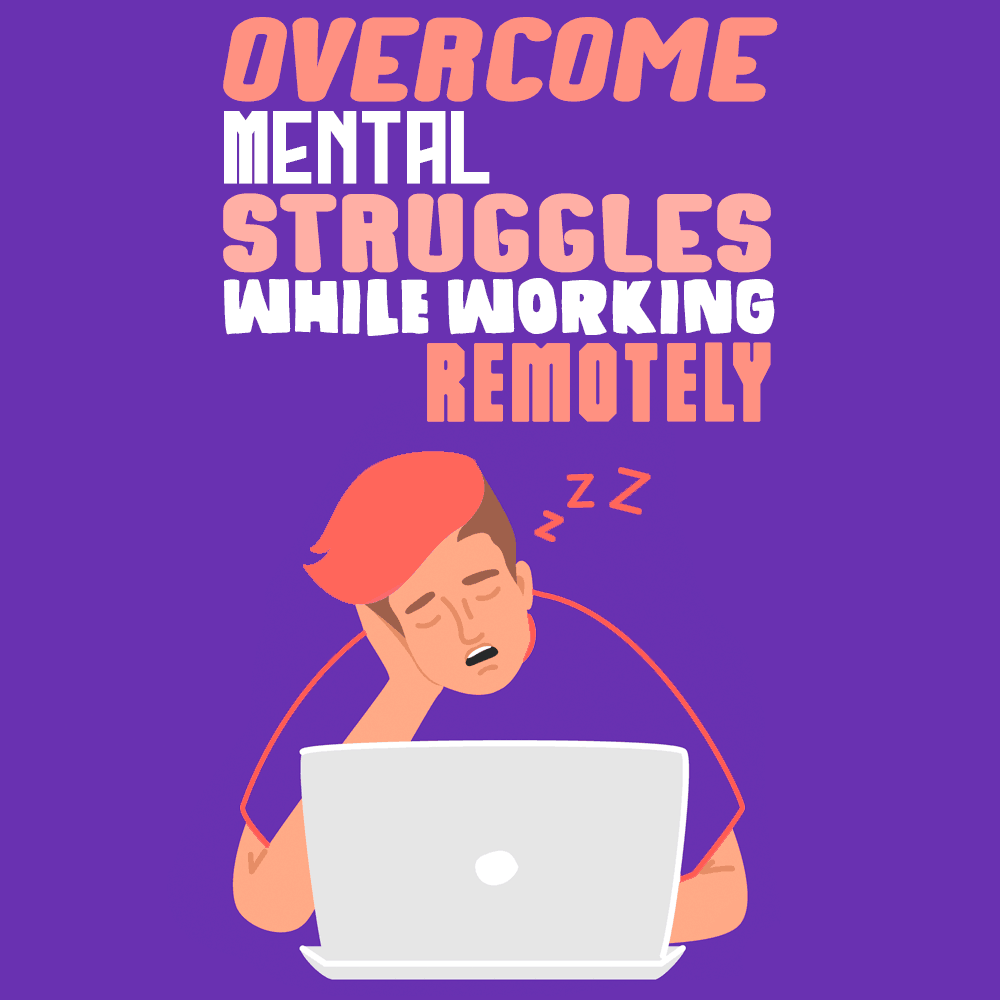 As a software developer, you have no pragmatic factors to stop you from working at home. After all, with most programming jobs, as long as you have access to a computer and a reliable internet connection, you’re all set.
As a software developer, you have no pragmatic factors to stop you from working at home. After all, with most programming jobs, as long as you have access to a computer and a reliable internet connection, you’re all set.
Despite this, and under normal circumstances, not every employer allows you to work remotely. With many organizations, convincing your boss to allow you to work from home may involve a lengthy and complex negotiation process.
Situations such as the current COVID-19 outbreak change all of this. When there’s a quarantine in place, you no longer have to convince anyone to allow you to work from home. In fact, you are required to do so.
However, being a remote worker isn’t always as easy as it seems. If you are like most people in quarantine right now, you’re working in an environment you don’t normally associate with work. This drastic change in environment can create psychological barriers that make it hard for you to keep your productivity up. This is especially true if you have been turned into a remote worker involuntarily, meaning you haven’t had a chance to properly prepare your personal environment for this task.
This change can be hard, but it’s not impossible to overcome. Let’s have a look at what problems you may encounter while working from home and how you can effectively get the better of them.
What Makes Working From Home Hard?
If you have never worked from home before, your subconscious probably doesn’t associate your house with work. This is, perhaps, the biggest factor that makes working from home hard.
Mental associations are extremely important. They lead to subconscious decisions we call habits, which are essentially effortless actions. If you haven’t developed a certain action into a habit, performing that action can end up taking a fair amount of effort.
On the other hand, if you already have a well-developed habit that goes against what you are trying to do, it becomes even harder to execute properly.
This is why you should expect working from home to be hard if you haven’t done it before.
People largely use their homes for rest and entertainment, so that’s the association they make with their homes. This makes it necessary to fight the urge to do the normal activities they enjoy while at home.
Perhaps, while at home, you spend most of your time gaming in your living room. In this situation, trying to get some work done will be extremely hard if the console is within reach.
Perhaps you like to keep your house tidy, and it’s due for a cleaning. In this situation, you have to fight the urge to do housework and focus on getting your remote work done instead.
In order to be a successful remote worker, you need to develop a habit of getting into your work mindset while being in a nonwork environment.
Not everyone will find it difficult adjusting to remote work. However, even if you are one of those lucky people, you may still be able to improve your productivity by making some simple adjustments to your routine.
How To Make Remote Work Effortless
Fortunately, getting into a habit of being productive while working from home doesn’t have to be excessively hard. There are certain tricks that can help you achieve your goals.
Here are four tricks I’ve found to be extremely effective.
1. Don’t Consume Nonwork-Related Content on Your Work Computer

While these activities are fine for your at-home devices, keep them away from your work devices. Activities such as gaming or binge-watching are designed to trigger your body to release large quantities of dopamine, which can lead to harmful habits such as addiction if not kept in check.
Because dopamine (and the feelings it induces) is addictive, it’s usually very hard to resist the urge to engage in dopamine-inducing activities. After all, most of your normal work activities will be dull in comparison. This is why if you want to get your work done, you should keep your work device and entertainment devices separate.
This also means that you shouldn’t use your at-home devices for work-related purposes. Because your brain has learned to associate specific devices with certain functions, using an entertainment device for work will make it much more difficult and way more time-consuming to complete whichever task you have at hand while remaining focused.
Even if you successfully manage to resist the urge to play video games or watch funny videos while you work, you would have spent quite a lot of energy fighting those urges, so the outcome of your work would not be anywhere near as good as it could have been.
It’s always easier not to engage in nonproductive content consumption while you are in the office and people around you can see what you are doing. When you are at home, however, you only have yourself to police your behavior. But it’s worth the effort to keep your work device for work only.
2. Don’t Work in a Room You Associate With Entertainment
This rule is very similar to the first one.
If you have a big wide-screen TV in your living room with a gaming console underneath it, then the living room is probably not the best place for you to do your work. You will just be looking at your gaming console out of the corner of your eye. Eventually, you will either end up ditching your work to play the console or spend a lot of mental energy fighting the urge to do so.
This is the reason why many people who work remotely on a regular basis have an entire room in their house set up as their office. Being in a room dedicated to work will help you set yourself up with the same mindset you normally have at work and help you become more productive.
But what if you don’t have the luxury of an extra room?
The good news is that there is a solution to this situation, as well. Just hide away all the things you associate with entertainment for the duration of your work session. Change your environment by making your room look different.
If you can’t hide certain items that may be too big, or you just don’t have the ability to hide them for any reason, then at least position yourself in such a way that you won’t see them. Out of sight, out of mind, as the saying goes.
3. Keep Your Work Environment Tidy
I will not go into the philosophy of improving your productivity by having a tidy desk. Other people have explained this concept better than I can.
What I am talking about is making sure that the room you are working in is already tidy before you start working so the thought of doing housework doesn’t enter your mind while you work.
People often try to kill two birds with one stone. It is tempting to get your house in order while you are working from home.
The problem with this approach is that multitasking doesn’t work, as has been proven by countless studies. If you try to do two tasks at once, you will probably end up doing neither of them to the quality that you would have done them on their own.
Making sure your environment is tidy helps you not want to do household chores while you are working. It will take these thoughts away from the forefront of your mind and keep your mind focused on what’s important, your work.
4. Wear Your Work Clothes as You Work

If you normally relax around the house in PJs, then chances are your brain has learned to associate them with relaxation. Being dressed for lounging around makes it hard to get in the mindset for work.
Of course, if your place of work normally requires you to follow a strict dress code, it’s not something that you have to do at home, too. But even if you simply make your bed, shower, and make yourself presentable, it’s easier to get into a work mindset, and you will no longer feel like you are on your day off.
By doing these small tasks, you accumulate small wins right from the start of your day and set yourself up for a productive day.
Being an Effective Remote Worker
There are many other things you can do to improve your productivity. Mindfulness practices, exercising, and splitting your work into small chunks are some of the most effective practices to help with working from home.
If you limit your distractions by creating an effective place to work, you’ll be one step closer to becoming an effective remote worker. Sure, you can try to defeat your at-home distractions by determination alone, but not everyone has enough willpower to deal with them. Plus, exerting willpower consumes a lot of energy, even in people who have a lot of it.
Just remember, it all starts with making your bed. The rest, when made into habit, should be a piece of cake.
